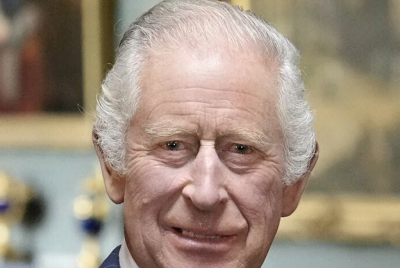UK Immigration Reform: How the Government Is Expected to Get Tougher
Mandatory digital ID, the 'BritCard', introduced for all adult residents

The Labour government under Keir Starmer is pressing ahead with sweeping reforms to the UK's immigration system. Ministers say the changes are designed to reduce net migration, tighten settlement rules and restore public confidence that the country's borders are under control.
The proposals were first set out in a White Paper in May 2025 and are now being shaped into legislation. They cover longer settlement periods, tougher visa requirements, stricter rules for family migration and the introduction of a digital identity scheme.
Supporters argue that the reforms will ensure migrants contribute more directly to the economy and integrate into society. Critics warn that the measures risk separating families, creating hardship for lower-income applicants and leaving some industries short of staff.
Stricter Visa Rules
One of the most significant changes is the plan to extend the route to indefinite leave to remain from five years to ten. Some groups, such as highly skilled workers, may qualify for accelerated settlement, but most migrants would face a longer wait for permanent residency.
The government also intends to raise skill and English language thresholds. The Skilled Worker visa will require degree-level qualifications or equivalent, while higher English standards will apply across categories, including for adult dependants, according to The Guardian. Family migration will involve increased income requirements and more demanding integration checks, raising concerns about accessibility for lower-earning households.
Recruitment from overseas in roles considered lower-skilled will also be reduced. Employers will need to demonstrate they have fully explored domestic training options before hiring from abroad.
Digital IDs and Enforcement
Alongside visa changes, ministers are introducing new enforcement tools. Central to this is a mandatory digital identity system, known informally as the 'BritCard'. The scheme, confirmed in September, will apply to all adult residents for right-to-work checks. A physical card will not be required, but a digital ID will be necessary for employment.
Officials say the system will reduce illegal working and make access to services more efficient. Civil liberties groups have criticised it as a step towards surveillance. A petition opposing the plans has already gathered more than 2.5 million signatures, while some former advisers warn that it could collapse within months if resistance grows.
Now at 2.5 million keep it going, make it the biggest petition yet.https://t.co/cVLSAMcUba pic.twitter.com/X0ytDBIiaB
— Lord Talbot (@Lord_Talbot64) September 29, 2025
Two more MP signatures on our cross-party letter in opposition to Digital ID.@AndrewmitchMP @_RobbieMoore
— Rupert Lowe MP (@RupertLowe10) September 29, 2025
I've reached out again to all MPs earlier today...
Say NO to Digital ID. Don't let resistance fade away - that is exactly what Starmer is hoping for. pic.twitter.com/MFy4npWWE8
You can’t work in the UK without a National Insurance number.
— Rob Moore (@robprogressive) September 29, 2025
So why do we suddenly need a Digital ID?
Contribution as a Condition
Another proposal is to make economic and social contribution a condition for permanent status. The Financial Times reported that Home Secretary Shabana Mahmood has said applicants should demonstrate they have never claimed benefits, pay national insurance, have strong English skills and show evidence of volunteering or community involvement. These rules would not apply to those already settled.
Supporters argue that the policy is fair and ensures residency is earned. Critics say it adds pressure on lower-income migrants and risks discouraging people who might otherwise contribute in less formal ways. Universities and business groups warn that restrictions could damage the UK's competitiveness and deter international students.
Political Stakes
According to the BBC, net migration has exceeded 750,000 annually in recent years, a figure frequently cited by ministers. Officials also acknowledge pressure from Reform UK and other opposition parties to take a tougher stance.
For Starmer's government, the reforms are a political gamble. Ministers hope they will reassure voters that migration is under control, while critics warn they could harm families and weaken key industries. Whether the balance between border control and migrant rights can be sustained will be tested in the months ahead.
© Copyright IBTimes 2025. All rights reserved.





















